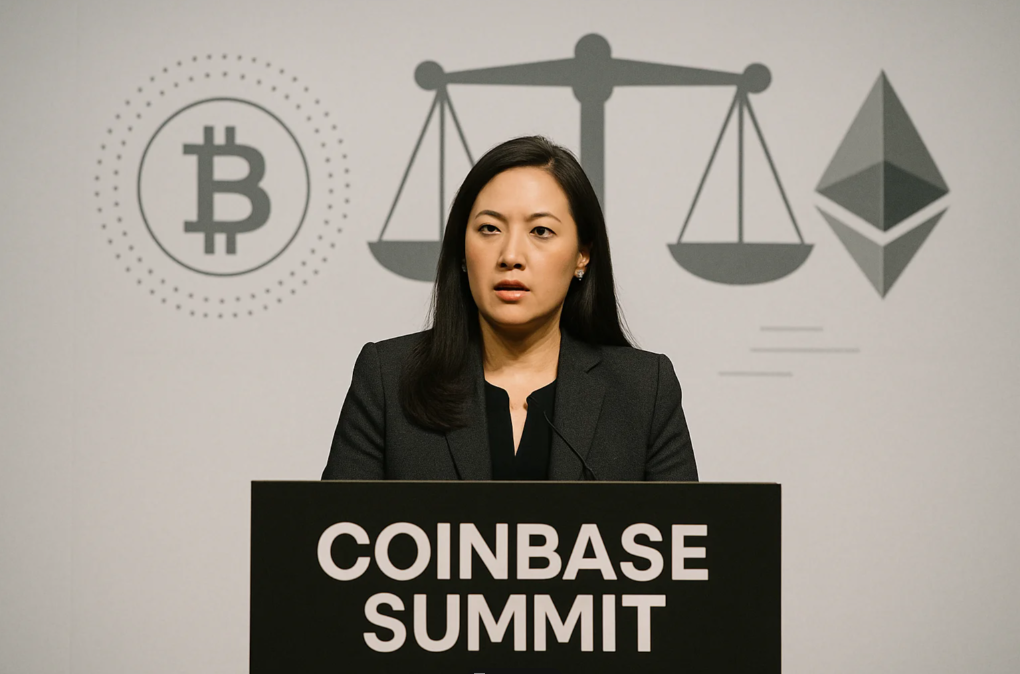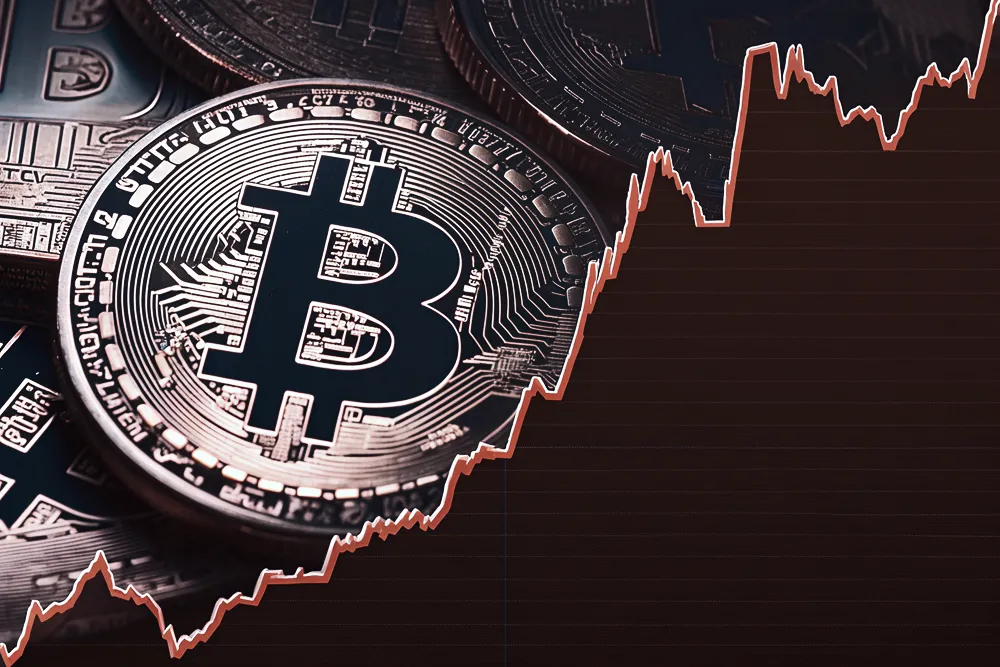The U.S. Commodity Futures Trading Commission (CFTC) welcomes a new acting chair, and a transformation in cryptocurrency regulation is quietly underway, as the former heavy-handed enforcement approach gives way to a more innovation-friendly strategy.
“The turf war is over.” On November 18, 2025, CFTC Acting Chair Caroline D. Pham made this clear in her speech at the FIA EXPO.
She referred to the long-standing power struggle between the CFTC and the U.S. Securities and Exchange Commission (SEC) over cryptocurrency regulation. This statement symbolizes a complete shift in the U.S. regulatory approach to crypto assets.

1. Leadership Transition
New Chair Takes Office with an Innovation Mission
● In early 2025, Caroline D. Pham began her role as acting chair of the CFTC, marking a significant change in the agency's leadership. Not only has her position changed, but her policy stance also reflects a different focus compared to the previous chair, Rostin Behnam.
● Under Pham's leadership, the CFTC quickly took action by establishing a 12-month “Crypto Sprint” program aimed at rapidly advancing the modernization of the digital asset regulatory framework.
This initiative aligns with the report titled “Strengthening U.S. Leadership in Digital Financial Technology” released by the presidential working group in 2025.
● The report explicitly recommends that the SEC and CFTC utilize existing powers to “immediately provide clarity to market participants on issues such as registration, custody, trading, and record-keeping, achieving federal-level digital asset trading.”

Farewell to “Enforcement-Style Regulation”
● Chair Pham openly criticized the previous regulatory approach, pointing out that “the lack of clarity and destructive enforcement policies have hindered U.S. businesses and entrepreneurs.” She emphasized that this new model will make the U.S. a breeding ground for digital asset innovation, attracting back companies that left due to regulatory uncertainty.
● In Pham's vision, the CFTC will collaborate with the SEC to jointly develop a “clear, predictable, and innovation-supportive regulatory framework.”
2. New Regulatory Era
From Confrontation to Collaboration
The long-standing “turf war” between the CFTC and SEC has officially ended under Chair Pham's leadership.
● On September 29, 2025, she co-hosted the first joint SEC-CFTC roundtable in 15 years with SEC Chair Paul S. Atkins, discussing topics such as innovation exemptions and DeFi. This collaborative relationship is reflected in coordinating product definitions, simplifying reporting standards, and establishing coordinated innovation exemptions.
● The two agencies also released a joint staff statement clarifying that current U.S. law does not prohibit SEC or CFTC-registered exchanges from facilitating the trading of certain spot crypto asset products.
Crypto Sprint Program
The “Crypto Sprint” program launched by Chair Pham includes three key components.
First, listing spot cryptocurrency trading, expected to be implemented on designated contract markets (DCM) by the end of this year.
Second, enabling tokenized collateral (including stablecoins) in the derivatives market, with related guidance expected to be released by the end of the year.
Third, making technical amendments to CFTC regulations regarding collateral, margin, clearing, settlement, reporting, and record-keeping to enable blockchain technology and market infrastructure.
3. New Landscape in the Crypto Space
From Binance Incident to Collaborative Regulation
Looking back at 2023, the CFTC took severe enforcement action against the cryptocurrency exchange Binance.
● The agency accused Binance of “deliberately ignoring” the provisions of the Commodity Exchange Act, profiting from operating an illegal digital asset derivatives exchange. The CFTC pointed out that Binance illegally offered and executed commodity derivatives trading for U.S. customers, who were not required to provide any identity verification before trading on the Binance platform. This case ultimately concluded with Binance paying a $4.3 billion fine, and its founder Changpeng Zhao resigning as CEO.
● CFTC Commissioner Christy Goldsmith Romero emphasized, “The CFTC has a zero-tolerance policy towards crypto platforms used for illegal financing. Binance knew its platform facilitated financing for terrorist organizations like Hamas, dark web markets like Hydra, and other entities, yet they not only failed to shut down this criminal activity but also turned a blind eye.”
New Frontiers in DeFi Regulation
● In September 2023, the CFTC took action against decentralized finance (DeFi) protocol operators for the first time, accusing Opyn, Inc. and Deridex, Inc. of failing to register as swap execution facilities or designated contract markets. These companies were also accused of failing to adopt the Know Your Customer (KYC) procedures and customer identification programs required by the Bank Secrecy Act.
● Commissioner Johnson pointed out that although the technical stack of DeFi protocols is theoretically highly transparent, certain self-proclaimed DeFi business models are actually “only nominally DeFi,” with key transaction clearing and settlement functions centralized off-chain, leading to information asymmetry.
Ongoing Crackdown on Fraudulent Activities
● In recent years, the CFTC has also dealt with multiple cases of cryptocurrency and precious metals fraud. In August 2023, the CFTC filed a lawsuit against residents of Florida, Louisiana, and Arkansas, accusing them of fraudulent solicitation through an entity called Fundsz, promising returns of over 3% per week.
● Similarly, in November 2025, the CFTC collaborated with regulatory agencies from 30 states to obtain over $51 million in sanctions and restitution from a California precious metals company that defrauded over 450 clients (most of whom were elderly) out of approximately $68 million.

4. Future Challenges
Balancing Innovation and Protection
Despite the new leadership's open attitude towards innovation, the CFTC still emphasizes the importance of investor protection.
● Commissioner Johnson noted, “We may expose the most vulnerable investors—those who enter our markets with cash earned from a day's hard work—to platforms with higher risk management risks and lower customer protections.”
● She has called for the initiation of a rulemaking process to address certain “heightened” risks associated with some crypto clearing activities.
Legislative and Funding Challenges
● Former Chair Rostin Behnam emphasized the necessity of legislative action in his 2023 testimony. He pointed out that “the CFTC is the only financial market regulator that relies on congressional appropriations,” and stressed that if new powers are granted to the CFTC, Congress must provide the resources needed to take on these new responsibilities.
● Behnam also emphasized that any new laws should not undermine existing laws and that “if securities laws apply, the SEC should use its strong powers to protect customers.”
The crypto world is watching the CFTC's new direction. As the “Crypto Sprint” program unfolds, the U.S. seeks to reclaim its leadership in digital asset innovation.
Balancing regulation and innovation remains a challenge. CFTC Commissioner Kristin Johnson's warning resonates: “We may expose the most vulnerable investors—those who enter our markets with cash earned from a day's hard work—to platforms with higher risk management risks and lower customer protections.”
Join our community to discuss and grow stronger together!
Official Telegram community: https://t.me/aicoincn
AiCoin Chinese Twitter: https://x.com/AiCoinzh
OKX benefits group: https://aicoin.com/link/chat?cid=l61eM4owQ
Binance benefits group: https://aicoin.com/link/chat?cid=ynr7d1P6Z
免责声明:本文章仅代表作者个人观点,不代表本平台的立场和观点。本文章仅供信息分享,不构成对任何人的任何投资建议。用户与作者之间的任何争议,与本平台无关。如网页中刊载的文章或图片涉及侵权,请提供相关的权利证明和身份证明发送邮件到support@aicoin.com,本平台相关工作人员将会进行核查。



